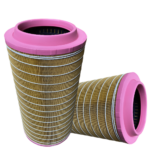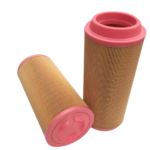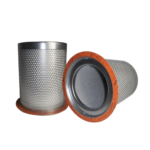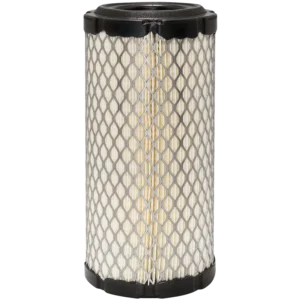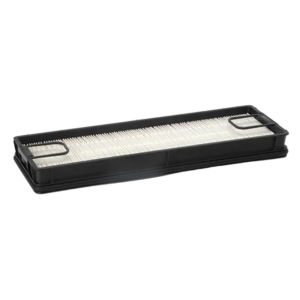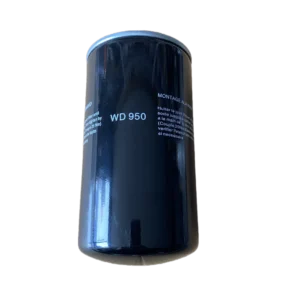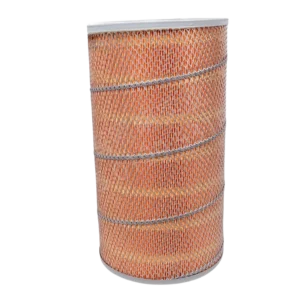Regular maintenance of air compressor filters is crucial for ensuring the efficient and reliable operation of your factory’s air compressor system. The filter plays a vital role in trapping contaminants such as dust, dirt, and oil from the intake air, preventing them from entering the compressor and causing damage to its components. Over time, these contaminants can accumulate and clog the filter, leading to a drop in airflow and an increase in pressure drop across the system.
This can result in reduced compressor efficiency, higher energy consumption, and potential damage to the compressor itself. By implementing a regular maintenance schedule for your air compressor filters, you can prevent these issues and ensure that your compressor system operates at peak performance. Regular maintenance not only extends the lifespan of the filters but also contributes to the overall longevity of the entire compressor system.
Neglecting filter maintenance can lead to costly repairs and downtime, impacting productivity and profitability in the long run.
Key Takeaways
- Regular maintenance of air compressor filters is crucial for maximizing efficiency and performance in your factory’s air compressor system.
- Understanding the role of filters in air compressor performance is essential for ensuring optimal functioning and longevity of the equipment.
- Best practices for cleaning and maintaining air compressor filters include using the right cleaning techniques and scheduling regular replacements.
- Properly cleaning and replacing air compressor filters is key to extending the lifespan of the equipment and avoiding costly repairs or replacements.
- Clean filters have a significant impact on overall compressor performance in your factory, leading to improved efficiency and cost savings.
Tips for Maximizing Efficiency in Your Factory’s Air Compressor System
Regular Maintenance is Key
One of the key tips for maximizing efficiency is to regularly monitor and replace air compressor filters according to the manufacturer’s recommendations. This proactive approach helps prevent filter clogging and ensures that the compressor system operates at its best. Additionally, investing in high-quality filters designed for your specific compressor model and operating conditions can significantly improve efficiency and reduce maintenance requirements.
Proper Installation and Sealing
Proper installation and sealing of filters are also essential to prevent bypass leakage, which can compromise filtration efficiency and lead to increased energy consumption.
Optimizing Filter Performance
By following these tips, you can optimize filter performance, reduce energy consumption, and extend the lifespan of your air compressor system.
Understanding the Role of Filters in Air Compressor Performance
Filters are integral components of air compressor systems, responsible for maintaining clean intake air and protecting the compressor from harmful contaminants. When the intake air is drawn into the compressor, it carries various particles such as dust, dirt, oil, and other airborne impurities. Without effective filtration, these contaminants can accumulate within the compressor, leading to wear and tear on internal components, reduced efficiency, and potential breakdowns.
The primary function of air compressor filters is to capture and retain these contaminants, preventing them from entering the compressor and causing damage.
By removing particulates and impurities from the intake air, filters help maintain optimal operating conditions within the compressor, promoting efficient performance and extending its operational lifespan. Understanding the critical role that filters play in air compressor performance underscores the importance of regular maintenance and cleaning to ensure their continued effectiveness.
Best Practices for Cleaning and Maintaining Air Compressor Filters
Implementing best practices for cleaning and maintaining air compressor filters is essential for preserving their functionality and maximizing their service life. Depending on the type of filter used in your compressor system, cleaning methods may vary, but some general best practices apply universally. Regular inspection of filters for signs of clogging or damage is crucial, as it allows for timely intervention before any issues escalate.
When it comes to cleaning air compressor filters, following manufacturer recommendations and guidelines is paramount. This may involve using compressed air or vacuuming to remove accumulated debris without damaging the filter media. In some cases, filters may need to be replaced rather than cleaned, especially if they are heavily soiled or damaged.
Proper storage of spare filters in a clean and dry environment is also important to prevent contamination before installation.
How to Extend the Lifespan of Your Factory’s Air Compressor Filter
Extending the lifespan of your factory’s air compressor filter requires a proactive approach to maintenance and care. Regular inspection and monitoring of filter condition are essential to identify any signs of wear, clogging, or damage early on. By addressing these issues promptly, you can prevent further deterioration of the filter and ensure its continued effectiveness in trapping contaminants from the intake air.
In addition to regular maintenance, selecting high-quality filters designed for your specific compressor system and operating conditions can significantly extend their lifespan. Filters that are properly matched to the airflow and pressure requirements of the compressor are more likely to perform efficiently and last longer. Furthermore, ensuring that filters are installed correctly and securely sealed helps prevent bypass leakage and maintains their filtration effectiveness over time.
Key Steps for Properly Cleaning and Replacing Air Compressor Filters
Properly cleaning and replacing air compressor filters involves following a series of key steps to ensure effective maintenance and optimal performance. Before initiating any cleaning or replacement procedures, it is important to refer to the manufacturer’s guidelines for specific recommendations tailored to your compressor system and filter type. When cleaning filters, it is crucial to use appropriate methods and tools to avoid damaging the filter media or compromising its filtration efficiency.
This may involve gently tapping or using compressed air to dislodge accumulated debris without causing harm to the filter material. In cases where cleaning is not feasible due to excessive contamination or damage, replacing the filter with a new one is necessary to maintain optimal filtration performance. Proper disposal of used filters is also important, especially if they have been exposed to hazardous substances or contaminants.
Following local regulations for safe disposal or recycling of used filters helps minimize environmental impact and ensures compliance with applicable laws.
The Impact of Clean Filters on Overall Compressor Performance in Your Factory
Clean filters have a direct impact on the overall performance of your factory’s air compressor system. By effectively removing contaminants from the intake air, clean filters help maintain optimal airflow and pressure levels within the compressor, promoting efficient operation and energy savings. Additionally, clean filters contribute to the longevity of the compressor by preventing wear and damage caused by airborne impurities.
The impact of clean filters extends beyond immediate performance benefits, as it also influences long-term reliability and maintenance costs. A well-maintained filtration system reduces the risk of unexpected breakdowns and associated downtime, contributing to improved productivity and operational continuity in your factory. Furthermore, clean filters support a healthier working environment by minimizing airborne particulates that could potentially affect air quality within the facility.
In conclusion, maintaining and cleaning air compressor filters is essential for maximizing efficiency, extending lifespan, and ensuring optimal performance of your factory’s air compressor system. By understanding the critical role of filters in protecting the compressor from contaminants and following best practices for maintenance, you can minimize downtime, reduce energy consumption, and prolong the operational lifespan of your equipment. Regular inspection, proper cleaning or replacement, and adherence to manufacturer guidelines are key elements in preserving the effectiveness of air compressor filters and promoting overall system efficiency.
FAQs
What is the importance of regular maintenance for air compressor filters?
Regular maintenance for air compressor filters is crucial for ensuring the efficient and effective operation of the air compressor system. Clean filters help to prevent contaminants from entering the compressor, which can lead to reduced performance, increased energy consumption, and potential damage to the equipment. By regularly maintaining air compressor filters, you can maximize efficiency, extend the lifespan of the equipment, and minimize the need for costly repairs.
What are the best practices for cleaning and maintaining air compressor filters?
The best practices for cleaning and maintaining air compressor filters include regularly inspecting the filters for dirt and debris, following the manufacturer’s guidelines for cleaning and replacement, using the appropriate cleaning methods and solutions, and ensuring that the filters are properly installed after cleaning. It is also important to keep a record of filter maintenance and replacement to track the performance and lifespan of the filters.
How can you extend the lifespan of your factory’s air compressor filter?
To extend the lifespan of your factory’s air compressor filter, it is important to follow a regular maintenance schedule, clean the filters as needed, monitor the air quality and operating conditions, and replace the filters when they reach the end of their service life. Additionally, using high-quality filters and ensuring proper installation can also contribute to extending the lifespan of the air compressor filter.
What is the impact of clean filters on overall compressor performance in your factory?
Clean filters have a significant impact on the overall compressor performance in a factory. They help to maintain consistent air quality, reduce energy consumption, prevent equipment damage, and minimize downtime. By ensuring that the filters are clean and well-maintained, factory operators can maximize the efficiency and reliability of their air compressor system, leading to cost savings and improved productivity.

